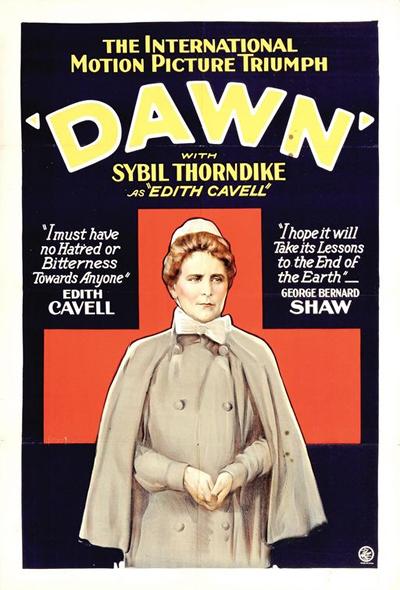Silent Film Fortnight
Turner Sims in partnership with the University of Southampton’s Film and Music departments presents a three-part series focusing on the film heritage of the First World War. With introductions to each film, expert insights and guests, including two of the country’s leading silent film score performers, the series of screenings and talks will show the role cinema played in memorialising the war after the armistice, and reflect on cinema’s continued importance to our present day understanding of the conflict.
The Guns Of Loos (1928)
Sunday 11th February 2018 3pm
Stephen Horne piano
Martin Pyne percussion
The Guns of Loos marked a bold new approach to depicting the war on screen. Previous British war films concentrated on highly detailed, documentary-style reconstructions of particular battles, with little attempt at drama or character.
For this film, the striking recreations of the conflict at Loos provide the backdrop to an intense psychological drama about a factory owner whose dictatorial manner and apparent nerves of steel quickly unravel when faced with the horrors of war. Combining strong performances with outstanding cinematography, the film received rave reviews on its release in 1928, with many critics declaring it the best war film ever made. Stephen Horne’s specially commissioned score was first performed in 2015 to mark the anniversary of the battle.
Ticket purchase required from the Turner Sims Box Office. Book Here
Dawn (1928)
Tuesday 13th February 2018 7:30pm
One of the greatest British martyrs of World War I, Edith Cavell (1865-1915) was a distinguished nurse who moved to Brussels in 1907 to help establish an independent medical institution outside the control of the established churches. After war was declared in 1914 she became actively involved in helping to smuggle British fugitives out of Belgium, for which she was eventually caught, tried and sentenced to death. In the first of two adaptations of the Cavell story director Herbert Wilcox opted to stage the events primarily in the form of an atmospherically-shot suspense thriller, with Sybil Thorndike in the title role, one of her most memorable film appearances.
Composer and pianist Andrew Fisher leads an ensemble in an improvised performance to accompany the film.
FREE: Advance registration required. Book Here
Lectures Prior to Dawn – All welcome, free to attend
Prior to the above screening of Dawn we are pleased to announce that two expert speakers will be presenting on related topics between 4-6pm at the University of Southampton. Venue TBC so please email Mary (m.j.Andrew@soton.ac.uk) to be informed of the venue once confirmed, or check back here. This is in collaboration with the Film Department’s Seminar Series.
Rebecca Harrison, University of Glasgow:
‘Stretchers, Screens and Cinema Day: How Medicine and Film Shaped Caregiving in the First World War’
Lawrence Napper, King’s College London:
‘“Patriotism is Not Enough”: Edith Cavell on Film’
1918, At Home, At War
Thursday 22nd February 7:30pm Neil Brand piano
Neil Brand, writer, composer, broadcaster (BBC4’s Sound of Cinema and Sound of Song) and World War I historian, uses the films, music and writings of the time to take his audience deeply into the experience of the serving soldier and his family at home 100 years ago. Battles, factory work, concert parties, cinema-going, the songs, laughter, highs and tragic lows of ordinary people spring to life through film, music and readings as Neil presents his unique vision of the century-old war and accompanies the films on the piano in his signature style.
Ticket purchase required from the Turner Sims Box Office. Book Here
This project will interpret and present the film heritage of the First World War. It will include a series of screenings, talks, and workshops that investigate and communicate the role cinema played in memorialising the war after the armistice, and reflect on cinema’s continued importance to our present day understanding of the conflict. Cinema served many vital purposes during and after the war: communicating news, commemorating the fallen, providing light relief, reconciling memories. As such, films remain one of the most tangible and accessible ways of understanding the period. While films themselves are restored and preserved by organisations such as the British Film Institute and the Imperial War Museum, they only live when presented in an appropriate context with suitable interpretation, including musical, as will be offered in this project.
This section of the ‘Great War: Unknown War’ programme will be centred on a series of public screenings of silent films accompanied by live musical performance. Planned films include ‘Dawn’ (1928), which tells nurse Edith Cavell’s story, along with a series of short subjects in keeping with cinema programmes of the period.
Each screening will be given a short introduction to make these historical films accessible to a contemporary audience, and will be followed by a roundtable discussion appropriate to the film. Planned discussion topics include the role of musical accompaniment in supporting audiences’ understanding of the films (both historically and in the present day) and the continued influence of the First World War on nursing. Each roundtable will be designed to engage the audience and involve them in the discussion to further their learning and enjoyment.
Preparation for the musical accompaniment of these films will be supported by a workshop for the student performers. Here historical fidelity, contemporary interpretation, and technical challenges will be addressed as students develop the particular skills needed to accompany silent films.
In addition to musical interpretation, a series of talks will offer historical interpretation and context for the films screened. Visiting speakers, including Dr Rebecca Harrison (University of Glasgow) and Dr Lawrence Napper (King’s College London), will present public talks that explore in detail the place cinema played, and continues to play, in our remembrance of the war. An academic symposium featuring members of the University of Southampton’s Centre for International Film Research (CIFR) will connect these events with the university’s world-class research and teaching.
